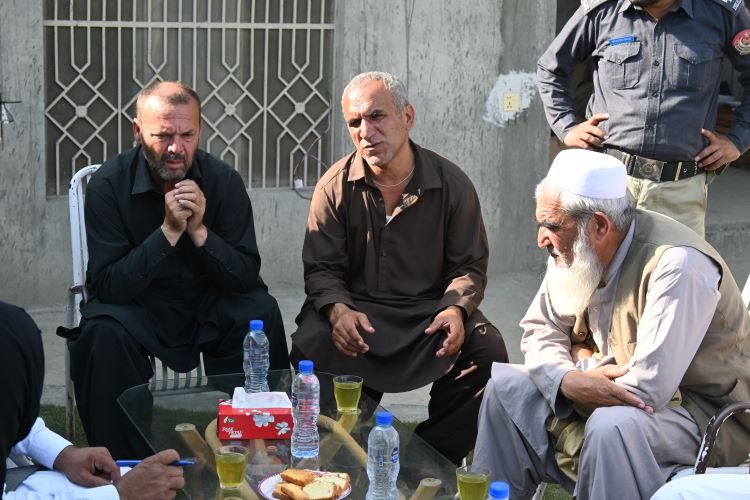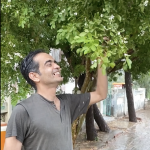
Afghan refugees are permanent residents of this camps however their youth travel to towns all over the country, selling embroidery and carpets woven by their families
Zaheer Udin Babar Junejo
I had the opportunity to meet a well-organized community of Afghan refugees at Khairabad Camp, an oldest one in Nowshera area of Khyber Pakhtunkhaw on October 24, 2023 where I participated in a food distribution activity by a non-government organization. While this wasn’t my first time leading such events, the level of organization, the values, and the genuine recipients were exceptional, an experience I found uniquely here at Khairabad.
The journey that brought these refugees and their loved ones to this place has been marked by hardship. Their present reality, as explained by the community, is far from ideal. They feel like strangers on someone else’s land. The wise, white-bearded elders of the community warmly welcomed us. Mr. Jalat Khan, the leader of the shura, hosted us. He shared that 1,500 households had recently returned to the Khairabad Refugee Camp in September. When asked about the reason, he shook his head and pointed toward a nearby mountain. “No, no,” he said, “we are permanent residents. We’ve been through it all. Living here, we’ve had to endure the harsh reality of scarce drinking water. We collect it only when the skies are kind enough to rain.” Another elder added, “Water is precious, but we share whatever we do have. We have only three pumps in mosques to collect water, as the second option we rely on rainwater reservoirs we constructed ourselves. The lack of income and the constant struggle for clean water often push us to the brink, forcing some to leave the camp for several months at a time to sell fruits or offer their labor for daily wages, just to meet their basic needs.” He explained that about 29 mosques in the community are closely connected, and they often resolve disputes on the spot. Their women are skilled, and the youth travel to towns all over the country, selling embroidery and carpets woven by their families.
1,500 households had recently returned to the Khairabad Refugee Camp in September.
However, the challenges go beyond just water. He shared that there is only one school established by an NGO, and only boys are allowed to attend. “Our girls stay at home, their futures uncertain,” he lamented. The nearest health facility is a staggering 13 kilometers away, a perilous journey on the bumpy and muddy paths that many ill individuals find impossible to make. “Accessing healthcare can be a life-or-death struggle,” he added. Despite these formidable challenges, Jalat Khan’s leadership and care and protection for every soul in his camp remain a lifeline for every resident. He sends a heartfelt plea to humanitarian supporters worldwide, “We need help to overcome these basic issues. Our daily lives are a constant struggle, but with the support of compassionate individuals and organizations, we can aspire to a better future.” He also acknowledged the vital role of philanthropy and institutions that are working to ease the burden and hardships in the Khairabad Refugee Camp.
______________
 Zaheer Udin Babar Junejo, based in Hyderabad, is a specialist in Institutional Development, MEAL (Monitoring, Evaluation, Accountability, and Learning), and Fundraising.
Zaheer Udin Babar Junejo, based in Hyderabad, is a specialist in Institutional Development, MEAL (Monitoring, Evaluation, Accountability, and Learning), and Fundraising.